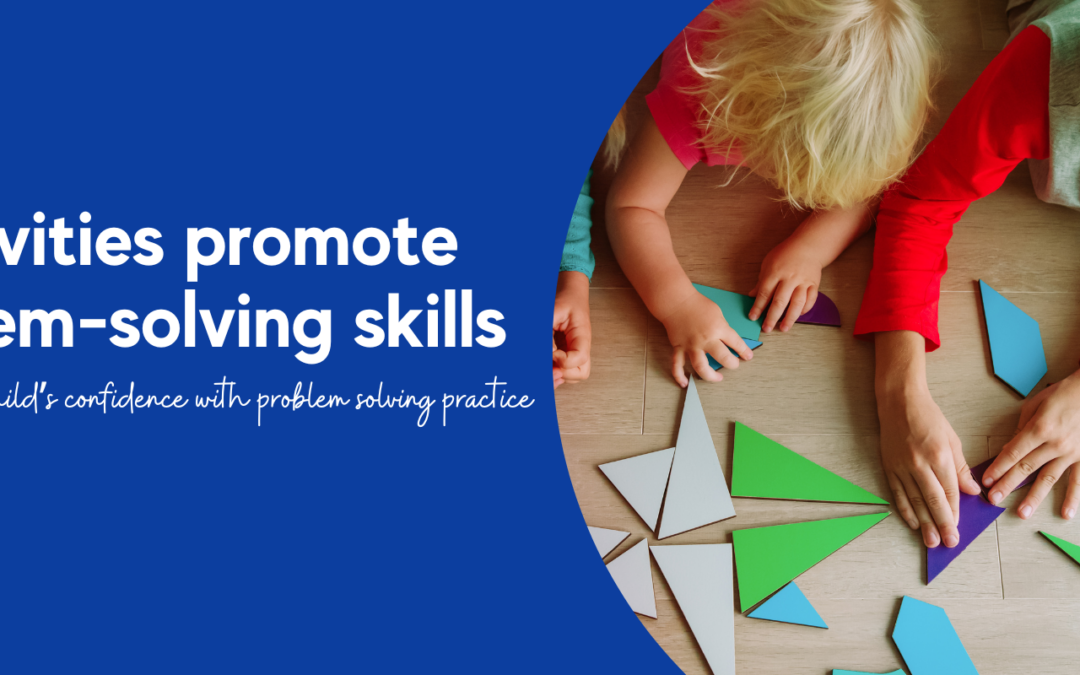Activities promote problem-solving skills
A child needs to learn to solve problems on her own. She has to develop the ability to get along with others, to learn to do new things, and to persevere when faced with challenges.
There are many ways for your child to practice and develop problem-solving skills. When you start giving your child opportunities to work through problems at a young age, you are giving him the tools and confidence he will one day need to take on bigger obstacles.
One of the simplest ways to encourage problem solving is to take a step back. Try not to do things for your child that you know she can do for herself. Offer encouragement as she learns through practice or trial and error. Remember that she is still learning and celebrate progress, not perfection.
Expect that mistakes will be made, and use them as learning opportunities. It can be tempting to take away privileges in response to a poor decision, but this does not help your child to do better next time. Focus instead on how he can make amends for his mistake and how he could handle it differently if the situation arises again.
Do not underestimate the value of play in developing problem solving skills. Through play, your child learns to think both creatively and logically, and both are important in finding solutions.
Creative play might include dress-up or pretend play, where your child can imagine herself or the toys she is using in a variety of situations. Free art is another excellent form of creative play. Instead of planning a craft with a specific outcome, provide your child with paper, glue, scissors and crayons and let her create.
Your child learns to think logically when he plays with toys that can be sorted and categorized. Blocks are a good example. He can sort them by colour or shape, and can figure out how they need to be placed together to build a tower, a building, or anything else he imagines.
Give your child responsibilities. A morning or evening routine chart is an excellent way to help your child start to take on some independence. Talk together about all the things that need to be done to get ready in the morning or to prepare for bed. Depending on your child’s age, you could make a chart with pictures, with words, or let your child make it herself.
Assign age-appropriate chores for your child to do around the house. Ask for your child’s input and assistance as you prepare meals or do other routine tasks.
Early and regular practice in problem solving builds your child’s confidence. She learns to see herself as a capable individual, and this allows her to face new challenges with courage.

